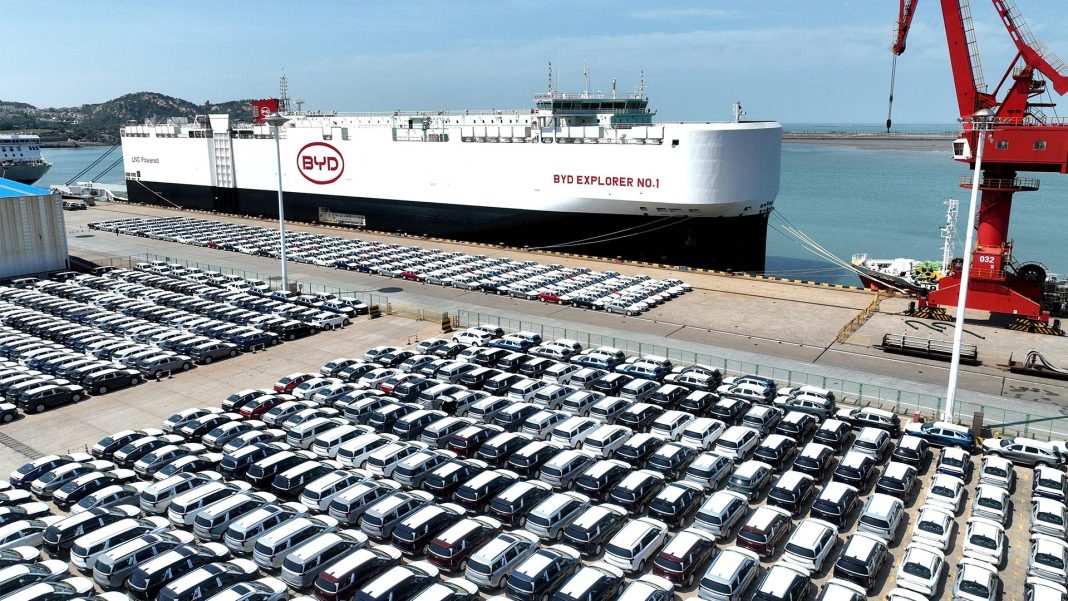 Janet Yellen, the Treasury Secretary, recently testified before Congress on the “State of the International Financial System.” However, lawmakers seemed primarily focused on discussing one country: China. Both Democrats and Republicans have expressed concerns about the threat posed by China, with House Speaker Nancy Pelosi stating that the Chinese Communist Party (CCP) represents the “single greatest threat” to US national security. During the hearing, Yellen faced numerous questions about the United States’ efforts to combat China’s predatory lending practices in developing countries, China’s overproduction of critical technologies, and US support for Taiwan’s defense against CCP aggression.
Janet Yellen, the Treasury Secretary, recently testified before Congress on the “State of the International Financial System.” However, lawmakers seemed primarily focused on discussing one country: China. Both Democrats and Republicans have expressed concerns about the threat posed by China, with House Speaker Nancy Pelosi stating that the Chinese Communist Party (CCP) represents the “single greatest threat” to US national security. During the hearing, Yellen faced numerous questions about the United States’ efforts to combat China’s predatory lending practices in developing countries, China’s overproduction of critical technologies, and US support for Taiwan’s defense against CCP aggression.
One of the key issues raised by members of Congress was China’s designation as a “developing country” by the International Monetary Fund (IMF), despite its extensive lending activities worldwide. In response to a question from Rep. Andrew Garbarino, Yellen stated that the US opposes any lending to China by multilateral development banks and has successfully pushed for substantial reductions in such lending. She emphasized that China’s income level and extensive lending should disqualify it from receiving loans from organizations like the World Bank.
Lawmakers also expressed concerns about China’s Belt and Road Initiative (BRI), which has been criticized for burdening developing countries with unsustainable debt and compromising their sovereignty. Yellen acknowledged the challenges posed by China’s lending practices and stated that the US is working hard to relieve the debt burdens of low-income countries through IMF programs. She noted that China often proves to be a holdout and a difficult lender to negotiate with. However, Yellen pointed out that progress has been made in countries like Zambia and Ghana, where China has come to the table for debt restructuring.
The mass production of cheap solar panels and computer chips by China was another topic of concern raised during the hearing. Lawmakers argued that these Chinese products undercut US producers and contribute to financing China’s geopolitical ambitions. Yellen addressed this issue by stating that the World Bank’s objective of directing 45% of its financing to climate projects may inadvertently result in the purchase of Chinese solar panels and batteries. However, she assured the committee that she is working to ensure American firms are aware of procurement contracts for climate projects.
In response to a question about legacy computer chips from Rep. Ritchie Torres, Yellen highlighted that Chinese overcapacity is being addressed through high tariffs. The federal government plans to increase these tariffs to 50% by 2025, which will help stem Chinese overproduction and level the playing field for American producers.
Taiwan, a strategic priority for the United States due to CCP threats to retake the island, was also a topic of concern during the hearing. Rep. Young Kim asked Yellen about her support for Taiwan’s membership in the IMF. While Yellen expressed support for greater engagement between the IMF and Taiwan, she did not explicitly endorse its membership. This cautious approach likely stems from China’s opposition to Taiwan’s membership in international organizations.
Yellen has faced criticism for her handling of China’s predatory economic activities. Some members of the committee voiced their dissatisfaction with her testimony, expressing concerns that the US may be giving away its leverage on sanctions and relying too heavily on empty promises from CCP officials. However, Yellen has been actively engaged in shaping the Biden administration’s policies towards China and visited China in April to address economic issues.
It is important to note that the Chinese Mission to the United States did not immediately respond to a request for comment regarding the concerns raised during Yellen’s testimony. This lack of response highlights the ongoing challenges in US-China relations and the need for continued dialogue and engagement between the two nations.


